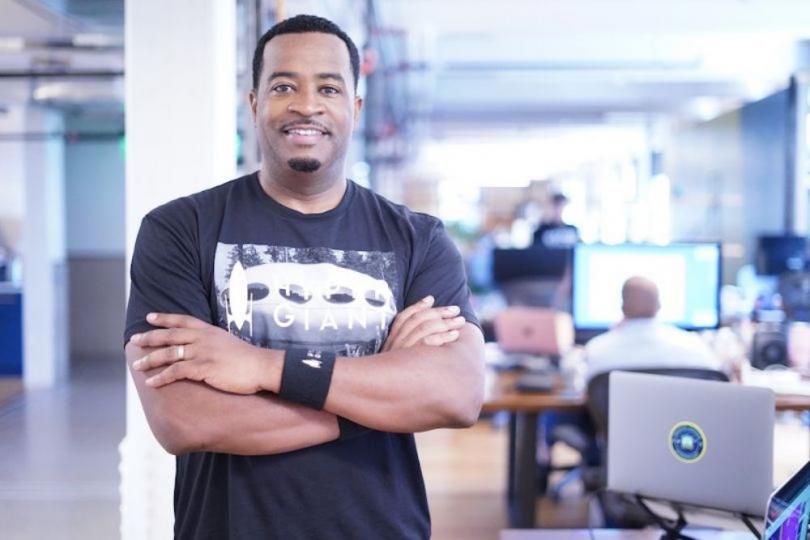
When white people ask Will Griffin about the death of George Floyd, he points out to them that he doesn’t need to be Chinese to remember the Tiananmen Square massacre. Griffin notes he also doesn’t need to be a sinologist to feel for the fallen pro-democracy protesters. And he says he doesn’t need to know a Chinese person to honor the event’s June 4 anniversary. He just needs to reflect on his value system to know what’s right.
“I’m like, ‘I hope I feel the way you feel about it, which is that this offends my values as an American,’” said Griffin, chief ethical officer at Hypergiant, an Austin-based AI company.
“Across the country, the reason why this feels different is because there are white people, people of all races, who’ve decided that they don’t want our country to continue to operate in this way,” Griffin, who is black, continued. “It offends their values.”
As tech companies respond to the death of George Floyd — which has led to large protests across the nation, in large cities and small towns alike — Griffin said startups are now faced with the choice to publicly support the Black Lives Matter movement or remain silent. They also face the choice of whether to take actions like pledging funds to black entrepreneurs or announcing plans to diversify their staff, or not.
Griffin, who previously worked for the NAACP Legal Defense Fund and the Urban Institute, views representation and equitable reimbursement for black tech workers as long-term solutions to the lack of minority participation in the tech and venture capital industry. If black employees are given equity stakes in the tech companies they join, Griffin said, they can finally earn the money they need to launch their own startups.
“Once people’s personal values are affected, then that causes them to think more broadly, like ‘What can we do in my company to help address some of these inequities?’” Griffin told Built In. “I think out of this tragedy the positive thing is people are being self-reflective.”
Admittedly, he said the tech industry’s progress on hiring minorities for C-suite positions and funding black ventures has been very slow.
Between 2013 and 2017, just 1 percent of venture-backed founders were black, according to a report from Rate My Investor. Griffin credited the lack of black funding to a lack of minority representation. A 2018 survey of more than 200 VC firms by the National Venture Capital Association found just 4 percent of industry employees were black. Today, there are just four black chief executives among the 500 largest companies in the country.
The lack of representation on the national scale is mirrored in the local tech scene, Griffin said. He currently works with the Notley Ventures nonprofit to attract black talent to the city’s startups, an initiative Griffin called “very new” for Austin. Griffin said the city’s lack of diversity then makes it hard for local tech companies to attract minority talent. While the city’s population is booming, the percentage of its population that is black is on the decline as rising rent prices push out black families who have lived in the city for generations, Griffin said.
Though some Austin tech companies have issued statements in response to Floyd’s death, Griffin said he hasn’t seen anyone “take a leadership position for social justice or make any concrete commitments in any way.”
“There’s not a lot of institutional support for African-American entrepreneurs or senior executives,” Griffin said. “There’s a real opportunity here because Austin is a large town that has its heart in the right place. Now, I believe people here are beginning to ask the question, ‘Well, how can we be helpful?’”
To do just that, Griffin said that venture capital and tech companies should make public hiring and funding commitments — and offer public data to back them up — so that people can hold them accountable. He said tech ethicists should be working to create company values around diversity and inclusion. Ultimately, tech companies need to realize social justice is the same as economic justice, Griffin said. Protesters calling for police accountability want the same thing as prospective black founders, he said — they want the same rights and opportunities as everyone else.
“When African Americans are being allowed to play the same game that everybody else in the industry is already playing, we know we’re getting closer to equality,” Griffin said.




